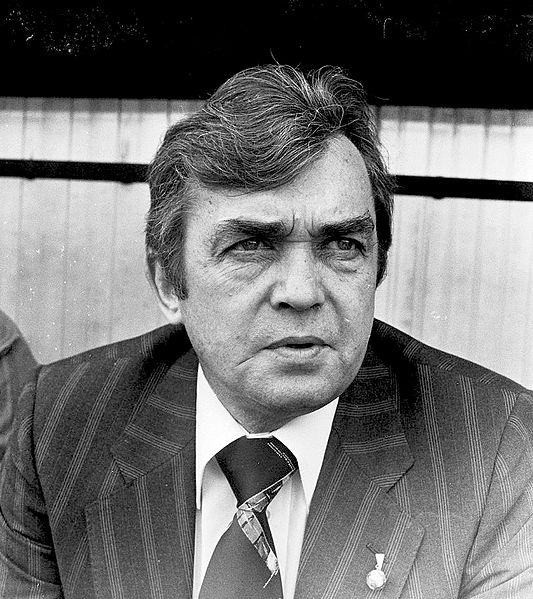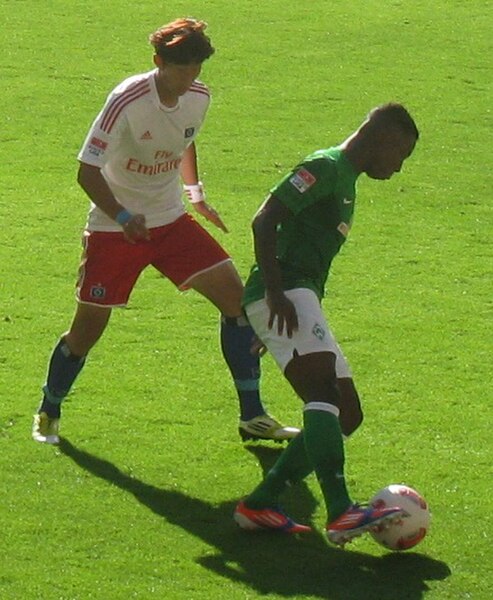1922 German football championship
The 1922 German football championship, the 15th edition of the competition, saw no champion determined after the first final ended in a two-all draw and the replay in a one-all draw. Hamburger SV was initially awarded the title because the other finalist, 1. FC Nürnberg had eventually been reduced to seven players in the replay, below the required number of eight, causing an abandonment. Hamburg was awarded the title but Nuremberg successfully protested. Hamburg launched a counter-protest and was eventually awarded the title but then declined the championship, leaving the 1921–22 season without an official champions. It was the second and last time, after 1904, that a German championship concluded without a champion.
Replica of the Viktoria trophy
Hamburger Sport-Verein e.V., commonly known as Hamburger SV or Hamburg, is a German sports club based in Hamburg, with its largest branch being its football department. Though the current HSV was founded in June 1919 from a merger of three earlier clubs, it traces its origins to 29 September 1887 when the first of the predecessors, SC Germania, was founded.
Ernst Happel, the most successful manager of the club, won the European Cup in 1983, the Bundesliga in 1982 and 1983, and the DFB-Pokal in 1987.
HSV (in blue jersey) vs Argentine team River Plate, "Trofeo Naranja" match, August 1984
The Volksparkstadion
Hamburg against rivals Werder Bremen in the Nordderby





